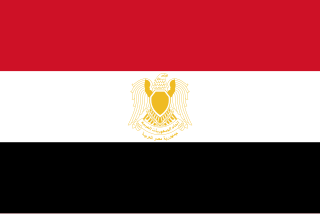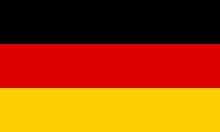
The 1976 Summer Paralympics, branded as Torontolympiad – 1976 Olympiad for the Physically Disabled, was the fifth Paralympic Games to be held. They were hosted by Toronto, Ontario, Canada, from 3 to 11 August 1976, marking the first time a Paralympics was held in the Americas and in Canada. The games began three days after the close of the 1976 Summer Olympics in Montreal.
Athletics at the 1976 Summer Paralympics consisted of 207 events. Argentina, Burma, Hong Kong, Indonesia and Peru won their first ever medals in the 1976 Summer Paralympics.
Weightlifting at the 1976 Summer Paralympics consisted of six events for men.

The United States sent a delegation to compete at the 1976 Summer Paralympics in Toronto, Ontario, Canada. Its athletes finished first in the gold and overall medal count.

Canada has participated eleven times in the Summer Paralympic Games and in all Winter Paralympic Games. They first competed at the Summer Games in 1968 and the Winter Games in 1976.
The 1976 Summer Paralympics medal table is a list of National Paralympic Committees (NPCs) ranked by the number of gold medals won by their athletes during the 1976 Summer Paralympics, held in Toronto, Ontario, Canada, from August 3 to 11, 1976.

Finland competed at the 1976 Summer Paralympics in Toronto. The country was represented by 50 athletes competing in archery, athletics, dartchery, swimming, table tennis, volleyball, weightlifting and wheelchair basketball.

Germany (GER) participated in the inaugural Paralympic Games in 1960 in Rome, where it sent a delegation of nine athletes. The country, since 1949 officially the Federal Republic of Germany (FRG), was until 1990 also called West Germany while the separate East German Democratic Republic (GDR) existed, which was recognized by the IOC only after 1964. East German athletes, however, participated in the Paralympics for the first and last time in 1984. Following the reunification of Germany in 1990, athletes from all of Germany compete simply as Germany (GER) again.

The Netherlands participated in the inaugural Paralympic Games in 1960 in Rome, where it sent a delegation of five athletes. The country has participated in every subsequent edition of the Summer Paralympics. It made its Winter Paralympics début in 1984, and has taken part in every subsequent edition of the Games, except 2006. The Netherlands was the host country of the 1980 Summer Paralympics, in Arnhem.

Dartchery was contested at the Summer Paralympic Games from 1960 to 1980. Competitions were carried out in pairs: mixed pairs from 1960 to 1980, and men's pairs and women's pairs from 1972 to 1980.
Zipora Rubin-Rosenbaum is an Israeli athlete who has won 31 Paralympic medals. She has represented Israel at the Summer Paralympic Games seven times and has competed in athletics, swimming, table tennis, and wheelchair basketball at the Games.

South Africa took part in the 1976 Summer Paralympics in Toronto, Ontario, Canada. The country was represented by 39 athletes, twenty-nine male and ten female. South Africans competed in archery, athletics, dartchery, lawn bowls, swimming, table tennis and wheelchair basketball. They won twenty six medals in total: six golds, nine silvers and eleven bronze, finishing 19th on the medal table.

Australia has participated in every Summer Paralympic Games since the inception of the Paralympics in the year 1960. The 1976 Paralympic Games in Toronto was Australia's fifth Paralympic Games. Australia competed in 10 out of the 13 sports and were able to win medals in six of these sports. There were 44 athletes representing Australia at the Games with a number of these athletes participating in multiple sports. Of the 44 athletes, 34 were males and 10 were females. As a team, Australia won 41 medals, 16 of which were gold. This placed it just outside the top 10 in 11th position at the end of the Games. The Australian team won more gold medals at the 1976 Paralympic Games than at any of the previous four Paralympic Games. 26 athletes finished on the podium in their respective events. This represents more than half the number of athletes that Australia sent to Toronto. Six world records were broken by Australian athletes on their way to winning their respective events.

Netherlands competed at the 1976 Summer Paralympics in Toronto, Canada. The team included 58 athletes, 41 men and 17 women. Competitors from Netherlands won 84 medals, including 45 gold, 25 silver and 14 bronze to finish 2nd in the medal table.

Poland sent a delegation to compete at the 1976 Summer Paralympics in Toronto, Canada. Its athletes finished seventh in the overall medal count.

Sweden sent a delegation to compete at the 1976 Summer Paralympics in Toronto, Canada. Its athletes finished ninth in the overall medal count.

Switzerland sent a delegation to compete at the 1976 Summer Paralympics in Toronto, Canada. Its athletes finished fourteenth in the overall medal count.

Egypt sent a delegation to compete at the 1976 Summer Paralympics in Toronto, Ontario, Canada. Its athletes rank twentieth in the overall medal count. Metwali Ahmed Jadr and Said Dowara won gold medals.

Spain sent a delegation to compete at the 1976 Summer Paralympics in Toronto, Canada. Its athletes finished twenty second in the overall medal count.

Italy sent a delegation to compete at the 1976 Summer Paralympics in Toronto, Ontario, Canada. Its athletes finished twenty fifth in the overall medal count.















